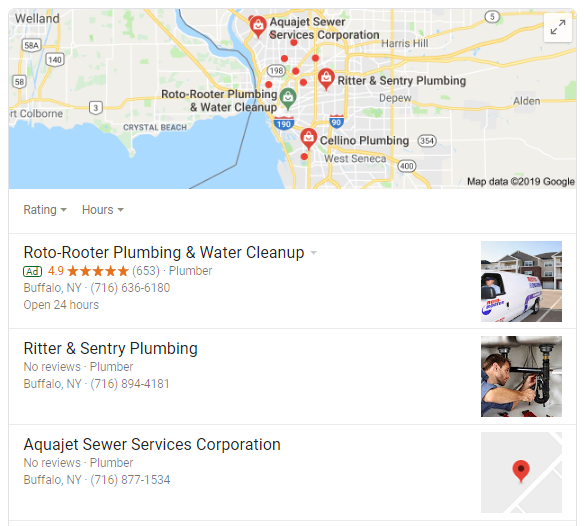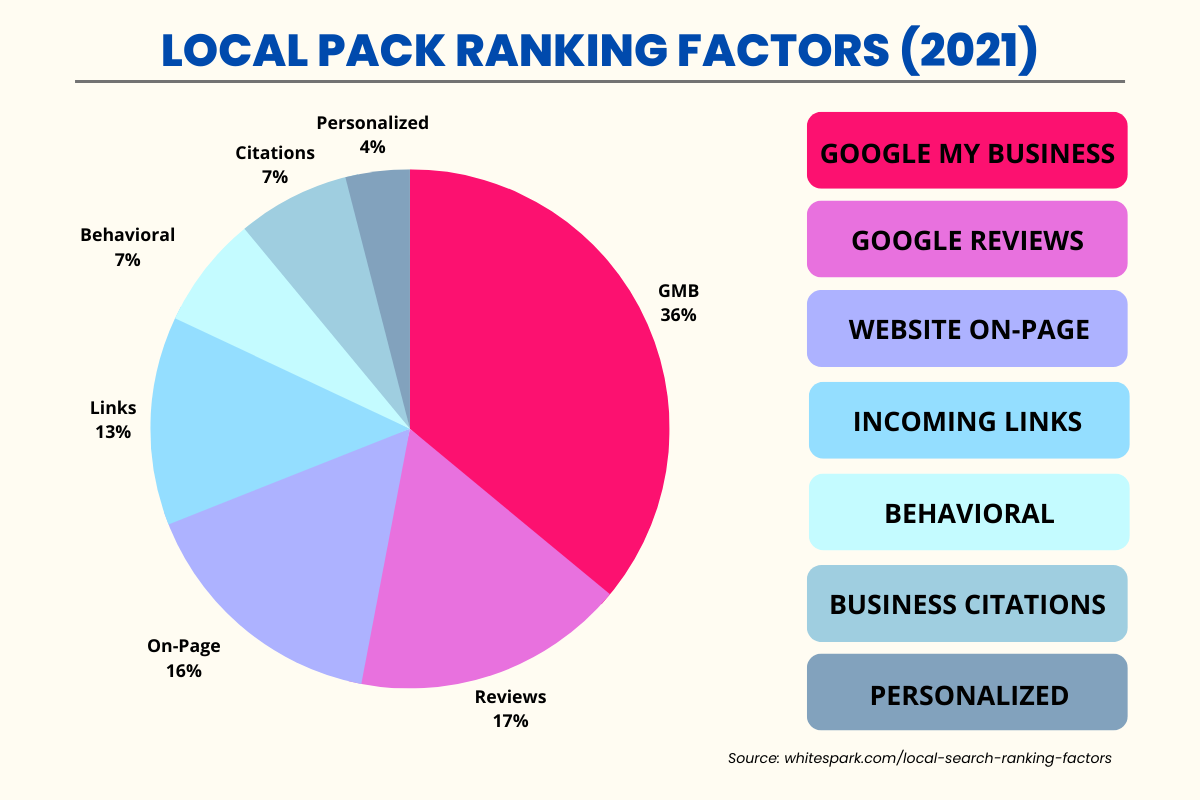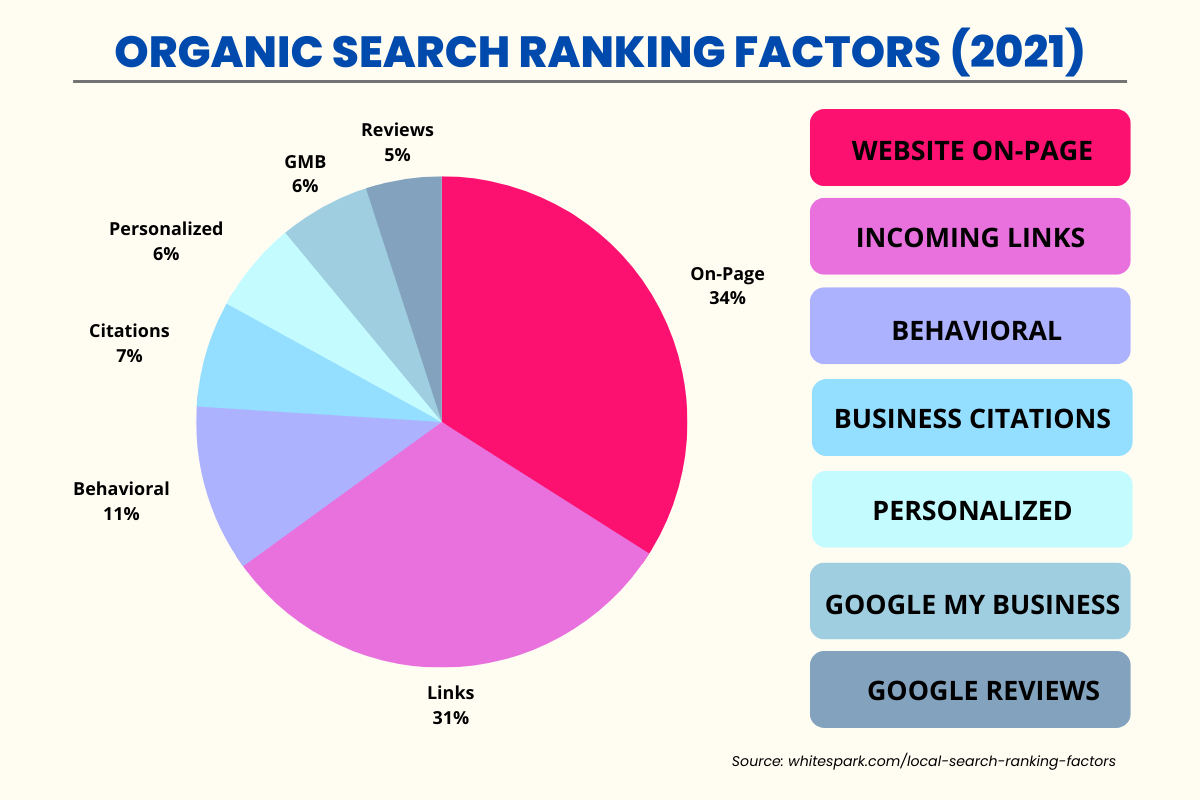Over the past 5 years, Google changed how they would rank local businesses dramatically. I’ll go over a quick history and then cover the major search ranking factors. I’ll also explain why optimization is actually a continuous process. Gone are the days of hiring an SEO guy to get your business website ranked and then do nothing for 10 years. The game has changed. Find out more below.
SEO - The Early Days
The core factors for SEO have always been keywords on the website and links from external sites. From 2000 to 2010, Google (and other search engines) consistently fought spam from SEO services trying to game the system. SEO’s would buy thousands of links from low quality websites and use black hat techniques to spam keywords all over their web page. This worked for a short time.
From 2000 to 2010, Google made a lot of changes, but SEO professionals often stayed ahead of Google and could usually find ways to help clients rank. Soon, Google found more effective (and complex) methods to rank websites that made it much harder for people to "game the search engines."
Google Panda and Penguin
Around 2011, Google implemented the biggest change in its history. Two major algorithm updates known as Panda and Penguin. The history of these changes is well documented. The easiest way to explain the impact of Panda/Penguin is that poor page layouts and bad quality external links would penalize sites. Your website would drop in rankings. Even websites that did nothing wrong got hit hard because it shifted the way Google viewed websites. The end result is that site quality made a bigger difference than before.
Local Search Changes
From 2012 to 2014, to rank local businesses, Google started changing results based on “local intent.” If someone was searching for “roofing service near me” they saw local results instead of a list of shingle manufacturers and Amazon products. In 2014, Google implemented the Pigeon update, which was the major shift in local business search.
Also in June 2014, Google launched the Google My Business (GMB) program, which published information about local companies. This allowed them to claim their business listing and add information, much like a Facebook business profile. GMB changed the game for several reasons. Your website use to be the only way Google could learn about your business, and it would factor in the majority of search signals. GMB and local search algorithms added new core ranking factors, such as:
- Text copy in your business description
- Proximity of the user on the map
- Reviews, review text and review response
- Posts, photos, videos, products and services.
The Local Pack
Moving forward, GMB has provided more places in your profile to put detailed data. Form fields allow you to provide data about business hours, services, products, business descriptions. You can also upload logos, photos and videos.
The biggest visual difference with GMB is that Google displays a completely different kind of search results. Local search now displays the "Local Pack." These listings are also known as the map pack or 3-pack.
This is where Google will rank local businesses using 3 local map listings at the top of the page, usually just under the text Google Ads. Google has experimented with 4 and 5 listings, but we have only seen 3 listings in the past 2 years. A pack listing is the prize of Local SEO. There have been multiple click study reports on the Local Pack. It is estimated that 30- 45% of all local intent search clicks go to companies listed in the Local Pack.

Factors to Rank Local Businesses
Over the years, ranking factors for area businesses and franchise locations have become much more complex. Moz, one of the leading search engine experts in the world, has done some extensive research on the topic.
In 2023, there are over 100 factors that impact how to rank local businesses in the Local Search. And then a similar set of 100+ factors that are slightly different for organic results below the pack. Ideally, you will rank high in both areas.
Local SEO experts are surveyed each year to ask about their thoughts on search ranking factors used to rank local businesses. Of course, this isn't a direct science, as no one knows the Google algorithm. However, experts are using their observation and there's a good chance that these factors are weighted close enough to take note. The survey included 32 Local SEO experts. Click here to read the Local search ranking factors report.
The charts below shows results of the survey responses, including search ranking factors for each type of search results.


Here are some of the major search ranking factors and what they mean to your local business.
Proximity
Most business will not be able to change their location. However, proximity is extremely important so that is why I have to mention it. The closer you are you to the individual searching, the more likely you Google will rank local businesses higher. Even if you are strong in other ranking factors.
If you plan to move or open a new office, then pay attention to location. As an example, we are location in a twin city so name searches of two cities are common. We helped a construction company open a new office very close to a high-end housing neighborhood and they got a new job within 24 hours after adding our optimized listing. Google search analysis played the largest role in determining the new location and how they would rank local businesses.
GMB Profile
Text used in your GMB profile is critical for search rankings. This is true of all other business listing platforms like Bing, Yelp, Manta, SuperPages and others. For GMB, this includes:
- Primary category title
- Secondary categories
- Business description
- Business services - product title
- Business services - product description
- Captions on photos
- User review text
- Review response text
- Completeness of profile
External Links
This used to be a more important factor in search rankings, it no longer carries as much weight in local search. So while it doesn’t pack the same punch, having good local links is helpful. Google looks at the quality and content relevance of the external linking domain. Anchor text plays a small part. Links within text of an article are effective. Good sources of external links:
- Business listing websites
- Niche websites for your industry
- Industry related blogs
- Associations, organizations or non-profits related to your business
- Local community website for your city location
Keyword Optimization
You have to take time and do the research. There are usually hundreds of keyword combinations that are used to find businesses. So you need to know the following:
- Which keywords have the most search volume?
- Which keywords describe your core service or product?
- Which keywords describe your most profitable keyword?
Keywords with the most searches aren't always the primary keywords for targeted optimization. It's often better to be ranked #1 for the secondary keyword for a profitable service than be ranked #18 for the keyword with the most searches. One of our clients gets 70% of their revenue from a service that is 10th on their list of relevant searches. It's a lucrative, high margin type of service, so we get the most value when ranked #1 for that exact keyword phrase.
Keyword optimization is a constantly evolving process. Rankings change every day. We track average rank and then do analysis on ranking local businesses vs. search vs. traffic to determine our monthly adjustments.
The Game Changer - Activity
In 2023 and far into the future, Google and other search engines will update rankings by the minute. A key factor is going to be the online activity of your business. All search engines, listings websites and social media platforms are paying attention to each other. There is so much data on the web that teams of highly intelligent IT professionals have learned how to understand user behavior. The data engineers at Google, Facebook, Amazon and Microsoft are the best in the world.
Let's be real. Google is building driverless cars. Googles ad platform uses artificial intelligence. It's safe to expect that they are closely watching how information flows on the Internet. They look at every aspect of your business.
So online business activity is not difficult to monitor and plays a key role in how your business is ranked in Google. This includes the following:
- Are you actively logging in and using GMB?
- Are you actively logging in and using, Yelp, Bing, Manta and the other 30+ listing sites?
- Are you updating information and events on these online platforms?
- Are you posting on social media (at least your Facebook page)
- Do you make posts on Google?
- Are you uploading photos and videos to GMB and other platforms?
- Are you adding content to your website?
- Are you posting articles or other content that link to your business?
Activity is important. And if you think about it, it makes sense. Ask yourself this question: If you are Google, Yelp or Bing, then what is the worst type of business that they could display #1 in rankings?
The answer: A company that is out of business.
So how do these platforms know that you are a thriving, active business? The only answer is activity. They don't know if you filed bankruptcy? They won't know if you sold your business location? They only know whether you are activity managing your online profiles. This includes:
- You post on Facebook weekly
- You added recent photos on Google
- You added a post about offering a discount on Bing
- You mentioned an upcoming event Local.com
- You posted a new tutorial on YouTube
- You added a blog to your website
- You changed service descriptions on Yelp.
- You ask customers to review your business consistently.
- You quickly make a thoughtful response to a review.
Strong, active businesses appear to Google and all other search engines as thriving companies that are using these platforms and care about their customers and show concern about their online reputation. Google will rank local businesses higher if they prove to be active.
And guess what?
CUSTOMERS like to see this too! They want to see photos of happy customers. They want to visually see your end product or service. Clients want to see reviews, and they want to see how you respond to reviews. Even if it's a bad review.
So a strong, active online presence will also help your reputation, click-through rates and convince more customers to contact you.
The same factors are used by other search engines and voice search. Google is the search leader and has an extremely advanced algorithm. Therefore, we put a lot of focus on Google. However, Bing and Yelp still get a fair share. Yelp and Yext are particularly strong in voice search. They are also looking at the similar ranking factors, including activity.
So, does this really work? Does it help?
I got a new client a few years ago. They had been in business 6 years and all their business came from contacts, sales and referrals. They had never got a single new customer from a search engine. We optimized their website, built their Google My Business profile and they have been getting new customers consistently. After 2 years of Local SEO work, they generated $821,000 in recurring annual contracts that came from organic search engines. If you are are looking for someone that can rank local businesses higher and help you turn them int o customers, then reach out.

